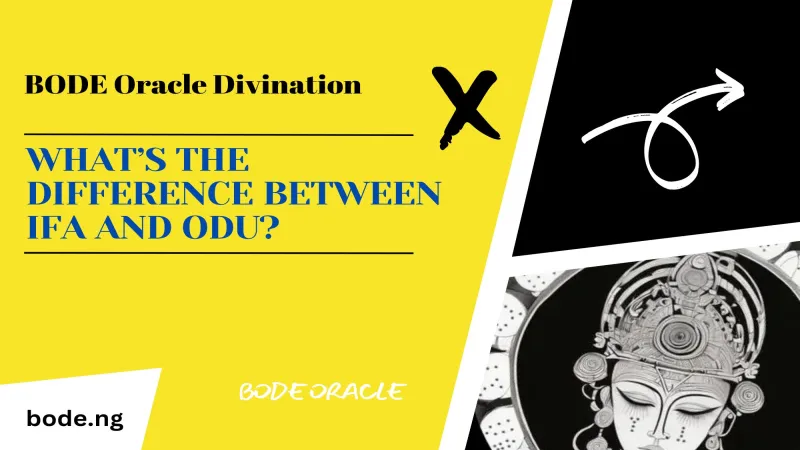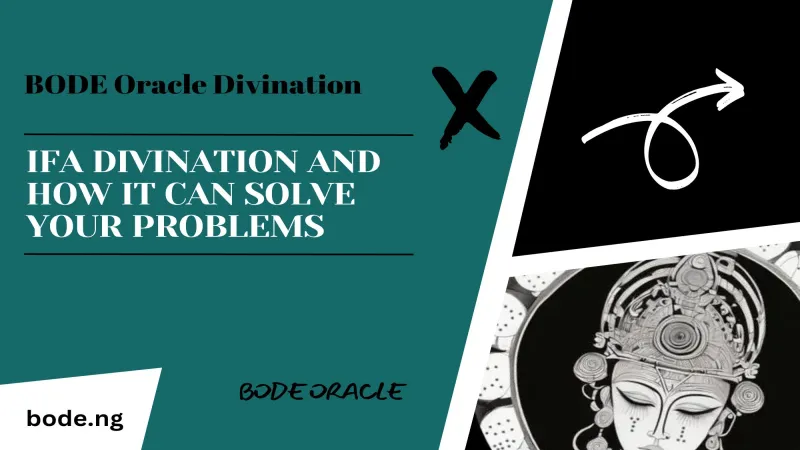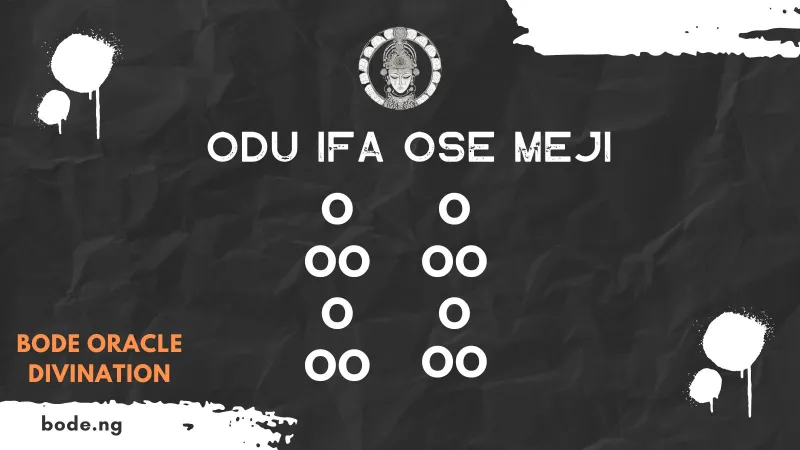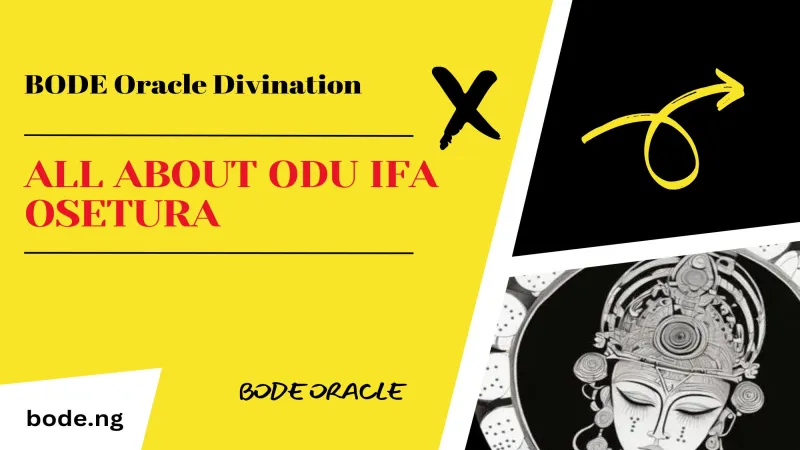Ifa is a system of divination which orunmila was given the task to develop while odu on the other hand is the life force of the universe.
The Ifa divination system is used when significant decisions, whether personal or collective, need to be made. The literary body of Ifa, known as "Odu," consists of 256 sections, each divided into verses called "ese."
Within Yoruba spirituality and the Ifa tradition, Odu carries deep spiritual meaning. It refers to the sacred texts and divination tools used in Ifa, a traditional Yoruba religion practiced mainly in Nigeria and other parts of West Africa. When performing Ifa divination, you might hear the term "Odu Ifa."
Odu Ifa is a smaller energy force that originates from Odu, which represents the universal force. This energy is directed to work with Ifa, similar to how ese Ifa (verses) support Ifa’s functions.
Odu Ifa is a condensed version of Odu, specifically created to assist Ifa in its divination process, which is why it is called Odu Ifa.
Ifa serves as a communication channel between humans and the Orisa (deities). Odu Ifa, in this context, acts as the pathway through which Ifa conveys messages.
It’s the medium that allows humans and the Orisa to understand each other. Odu is considered more powerful than Ifa, as it gives rise to Odu Ifa, which Ifa uses as a tool for communication.
You Can Also Read More On
Brief History of Hermeneutics in Relation to Odu Ifa
Ifá
This is the overall system of divination and the religious practice associated with it. Ifá is the knowledge or wisdom passed down through divination, which is attributed to the deity Orunmila, the god of wisdom and divination in Yoruba belief.
Practitioners, known as Babalawos (priests), interpret the messages of Ifá through rituals and divinatory tools, such as palm nuts (ikin) or a divination chain (opele).
Odu
Odu refers to the specific signs or patterns that are revealed during an Ifá divination session. There are 256 Odu, each representing a combination of energies, stories, proverbs, and spiritual principles.
Each Odu holds deep meanings and provides insight into a person's destiny, the best path to take, and spiritual guidance.
In Ifá divination, when a Babalawo performs a reading, they cast the divination chain or manipulate palm nuts to generate a specific Odu.
The Odu that appears is not random; it is believed to reflect the individual's spiritual and life circumstances.
Each Odu has associated verses, stories, or myths, often called ese Ifá, which provide deeper insights into the individual's past, present, or future.
Read More
Awon Odu Ifa: All About The 16 Odu Ifa
Seeking Guidance from Odu Spiritual Meaning
The Ifá tradition depends heavily on interpreting Odu signs to offer guidance and understanding in different areas of life.
This process usually involves consulting a Babalawo, or an experienced practitioner, who can explain the meaning of the Odu signs for the person seeking advice.
To receive an Odu reading, the individual typically undergoes a ritual called "Ebo," where prayers, sacrifices, and offerings are made to the deities connected with the Odu signs.
After the ritual, the Babalawo uses divination tools such as cowrie shells, palm nuts, or wooden sticks to draw one or more Odu signs.
Interpreting these Odu signs is a complex and detailed task that requires deep knowledge and experience in the Ifá tradition.
People Also Read
Iwe Odu Ifa by Ifayemi Awopeju Bogunmbe
Odu Ifa Signs And How They Are Cast
The Babalawo takes into account several elements, such as the specific combination of Odu signs, the individual’s background and current situation, as well as the influence of astronomical and cosmic forces.
Once the interpretation is given, the person receives advice on how to deal with their challenges or situation. This advice could involve specific actions, prayers, rituals, or tasks that help them achieve balance, harmony, and fulfillment in life.



